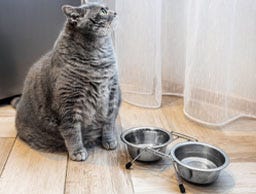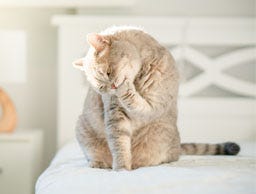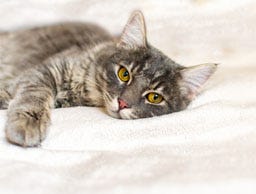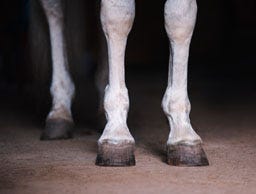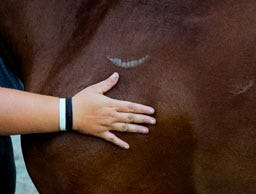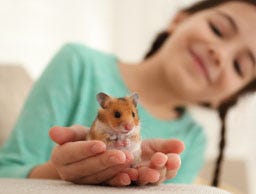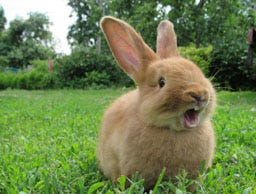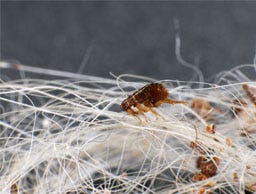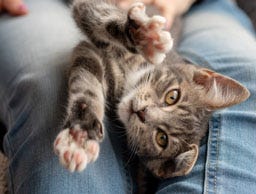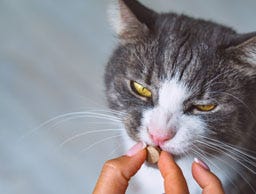Is Your Cat Not Eating? Here's Why
Food is an integral aspect of any living thing's life, and going without food for a day or more can lead to consequences. For dogs, it’s usually not too drastic for them not to eat for a day, but when it comes to cats, they can quickly become nauseous from lack of food. This nausea can then cause your cat not to want to eat any of their food, which, if it continues, can lead to them eating less and less, which can have an extreme effect on their health and overall well-being.
There are a few reasons why your cat may have stopped eating, and in this article, we’ll discuss some of these points and what you can do to help stimulate your cat’s appetite and keep it fed and healthy.
What Happens if Cats Don’t Eat
As we’ve mentioned before, cats need to eat every day to help them maintain a healthy weight and to ensure their systems keep running as they should. When cats go without eating for more than three days, they can develop a condition called Hepatic Lipidosis (commonly referred to as Fatty Liver Syndrome).
Fatty Liver Disease in Cats
Much like humans, when cats don’t get enough energy from their food, the body begins to break down fat deposits to replenish their energy reserves. When this breakdown of fat occurs rapidly (after not eating for 3-4 consecutive days, for example), the liver can become overwhelmed and struggle to process it. This fat then becomes stored in and around liver cells which will impact liver function in your cat and if left untreated, can be fatal.
Diseases like Fatty Liver Syndrome can only be diagnosed by a veterinary professional and may require intensive treatment and possible hospitalisation if the conditions are severe enough. The most obvious symptoms of Fatty Liver Syndrome in cats include:
- Prolonged anorexia (not eating much or at all for consecutive days or even weeks)
- Rapid weight loss
- Vomiting or diarrhoea
- Constipation
- Depression
- Drooling
- Jaundice (Yellowing whites of eyes or skin)
Some of the symptoms mentioned can also relate to other serious conditions, so it’s very important you have your cat examined by a vet when you notice any of the above symptoms.
Your Cat is Bored of Their Food
If you’ve noticed that your cat isn’t eating as much as usual, then the first thing to rule out is whether or not they are enjoying their food. Much like humans, cats can become bored with eating the same food day after day and might appreciate a change of food. This could be as simple as buying your usual brand of cat food and just switching up the flavours. If you usually feed them a fish-based food, try swapping it for the meat flavour and see if that stimulates their appetite.
Many brands of wet cat food will also offer foods in either a jelly or gravy option, so if your cat isn’t eating as much, try switching over and see if there’s any improvement. Cats can also be particular about food textures, so if you usually feed or wet dry cat food, try switching to the one you haven’t been feeding them to see if it stimulates their appetite.
If your cat isn’t enjoying their food even after you’ve tried switching flavours, it may be time to change to a new food altogether to engage their interest. This could mean switching to a more expensive or palatable cat food with a stronger aroma or meaty texture to keep them interested.
How to change your Cat’s Food
Changing your cat’s food is not as simple as just putting the new food right into their bowl. Suddenly changing your cat's food can lead to further issues like gastrointestinal upset, which can cause diarrhoea and vomiting or may reduce your cat’s appetite even more. This is why the transition needs to be made slowly, usually over the course of a couple of weeks, to allow your cat to adjust. This is done by gradually introducing the new food to your cat while phasing out the old until your cat is left with only eating the new food.
If your cat is still eating after changing their food, then a more serious issue may be causing their lack of appetite.
Your Cat is Ill
Perhaps the most concerning reason your cat isn’t eating is an underlying condition causing them pain, discomfort, or a lack of appetite. There are a number of issues that your cat not eating might indicate, including (but not limited to):
- Dental problems
- Digestive Problems
- Cat Flu
- Diabetes
- And more.
If you’re worried that an illness is the cause of your cat’s lack of appetite, you should contact your vet for a professional diagnosis as soon as possible. Some conditions that may affect your cat’s appetite can be severe, and if you catch it early, you can minimise any damage the condition may cause.
Dental Disease
If your cat is suffering from any dental disease or pain, this could cause them not to eat, as chewing their food could be uncomfortable or even painful. This is why it’s important always to take care of your cat’s dental health and check their teeth and gums regularly to ensure there’s nothing wrong. If you are concerned about your cat’s dental health, consult your vet for further advice.
Digestive Upset
Much like people, if your cat has digestive upset, they won't want to eat. If your cat has digestive problems, not eating is typically the first sign, followed by vomiting or diarrhoea and possibly even abdominal pain. The cause of your cat’s digestive upset can vary depending on a number of factors, from something as simple as changing to a new food too suddenly to more serious conditions like internal parasites or infections. Some digestive issues can be helped by introducing a cat probiotic like the Purina Pro Plan FortiFlora for cats. If you haven’t changed your cat's diet and notice signs of digestive upset, contact your vet for a specific diagnosis and further advice.
Recent Vaccinations
While not technically an illness, it’s important to note that if your cat has recently had their vaccinations or has started a new treatment plan for another condition, this can also impact their appetite. When you begin a new course of medication with your pet, always check the datasheet thoroughly before administration to make yourself aware of any potential side effects they may have on your pet.
Your Cat is Anxious or Stressed
Cats like routine, and when something disrupts this, it can lead to noticeable changes in their behaviour, including a lack of appetite. If you think your cat may be stressed or anxious, it’s important to find the root cause so you can remove these triggers and help get them back on track. If you can’t find any obvious cause for your cat’s discomfort, or the cause is unavoidable (such as a new family member, moving home or building works), then there are several ways you can help, including using pheromone products such as the Feliway Classic Diffuser or speaking with your vet about anxiety prescriptions for cats.
There are multiple symptoms of anxiety in cats, which you can learn all about in our blog below.
Your Cat Isn’t Getting Enough Water
Sometimes a cat’s appetite can lessen if they aren’t getting enough fresh water. This is why it’s important to ensure there is always a source of freshwater available for your cat so they can stay hydrated to protect their sensitive urinary tract and kidneys, especially for older cats.
How to Get Your Cat to Eat
Once you’ve found the reason your cat isn’t eating, it’s much easier to stimulate their appetite again. If the root cause is related to illness, then it’s important to follow your vet’s advice going forward. Depending on their illness, they will have provided a treatment plan that may or may not include changes in diet or have recommendations on how to stimulate their appetite.
If your cat is simply bored, changing to a new food brand, as mentioned above, could be the answer. Or, try making their dinner times more fun with the introduction of feeder toys you can fill with treats of kibble that, when your cat bats it, will release food. This mimics how cats play with their prey in the wild and can stimulate their appetite, combatting their boredom.
If you are still struggling to stimulate your cat’s appetite, you can try offering tasty (and often smelly) additions to your cat’s food like fish oil, broth that doesn’t contain any toxins (such as onions) or even small portions of tuna or liver (only in moderation as too much of these can be harmful to your cat).
Knowing the effect not eating can have on your cat’s health can be scary, especially for new owners, but it’s important that you never force-feed your cat to get them eating again. This can be very stressful for your cat and lead to even more medical complications.
If you are looking for a new food for your cat, you can browse our extensive selection of veterinary-recommended cat food or get in touch with us to learn more about what food we have available that may be suitable for your cat.
This post is an opinion and should only be used as a guide. You should discuss any change to your pet’s care or lifestyle thoroughly with your vet before starting any program or treatment.





























